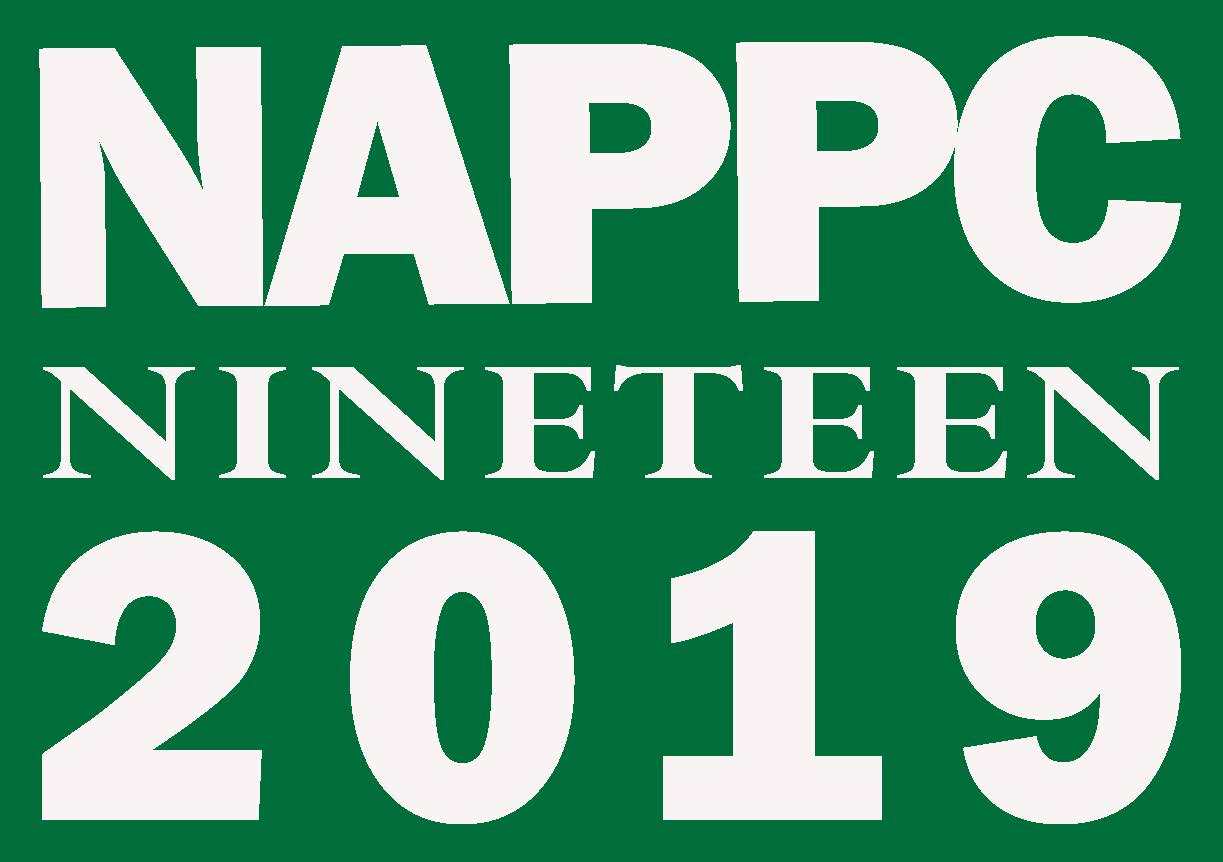NAPPC 2019 Conference Recap
This year's North American Pollinator Protection Campaign (NAPPC) Conference, hosted at the U.S. Department of the Interior, was a huge success featuring the collaboration of a diverse set of partners, including many first-time participants. The Pollinator Partnership and NAPPC Team works tirelessly to convene all stakeholders in pollinator-related fields and to enable them to find common ground on critical issues, benefiting pollinators with innovative solutions.
This event included wonderful, world class presentations from leaders at the forefront of pollinator issues. Topics ranged from an update on beekeeping to bats and agave, the effects of agricultural land-use change on pollinator habitat, and the role of pollinators in human well-being. Speakers included:
Dr. May Berenbaum, University of Illinois
Dr. Diana Cox Foster, USDA-ARS
Dr. Clint Otto, USGS
Margaret O'Gorman, Wildlife Habitat council
Mylea Bayless, Bat Conservation International
Tim May, American Beekeeping Federation
Laurie Davies Adams, Pollinator Partnership
Additionally, NAPPC convened 9 task forces who aim to establish year-long objectives surrounding a certain pollinator issue. One task force is determining how pesticide registration and regulation can be used as a tool to protect and promote pollinator health. Another task force is encouraging incentives for pollinator habitat on managed lands, while another is engaging youth in pollinator friendly practices and expanding pollinator gardens in urban areas. The Bee Friendly Farming task force is collaborating with private agricultural and local agencies that support on-farm habitat for pollinators to promote certification. The honey bee health task force creates an RFP with relevant priority areas for scientific grants. Current grantees gave updates on their honey bee health research on the following topics:
Makeylee Crone, Penn State University
The effectiveness of manipulating pollen macronutrient ratios to improve honey bee resilience to pesticide stress
Zachary Lamas, University of Maryland
Varroa behavior invading brood cells and the consequences of co-infested cells
Dr. Ana Montero-Castaño, University of Guelph
Elucidating the role of crop flowers as reservoirs of pathogens and the influence of the pollinator community on pathogen transmission to honey bees
Madeline Carpenter, Penn State University
Breeding for tolerance to DWV in honey bees
Liz Walsh, Texas A&M University
Quantifying the impact of pesticide contamination in the wax rearing environment on developing honey bee queens
Dr. Jacob Wenger, California State University, Fresno
Assessing synthetic amorphous silica (SAS) for the management of small hive beetle (Aethina tumida)
2019 Pollinator Award Winners
NAPPC also presented 5 awards to pollinator advocates and farmer ranchers who have worked for years to promote pollinators. These awardees understand just how important pollinators are to food, culture, and life. They have taken that extra step to help out the birds, bees, butterflies, moths, and bats that support agriculture and ecosystems everywhere. NAPPC, through its recognition and appreciation of these individuals, encourages their activities and hopes to catalyze future actions on behalf of pollinators.
Timothy Paule and Nicole Lindsey - Detroit Hives
NAPPC POLLINATOR ADVOCATE USA 2019
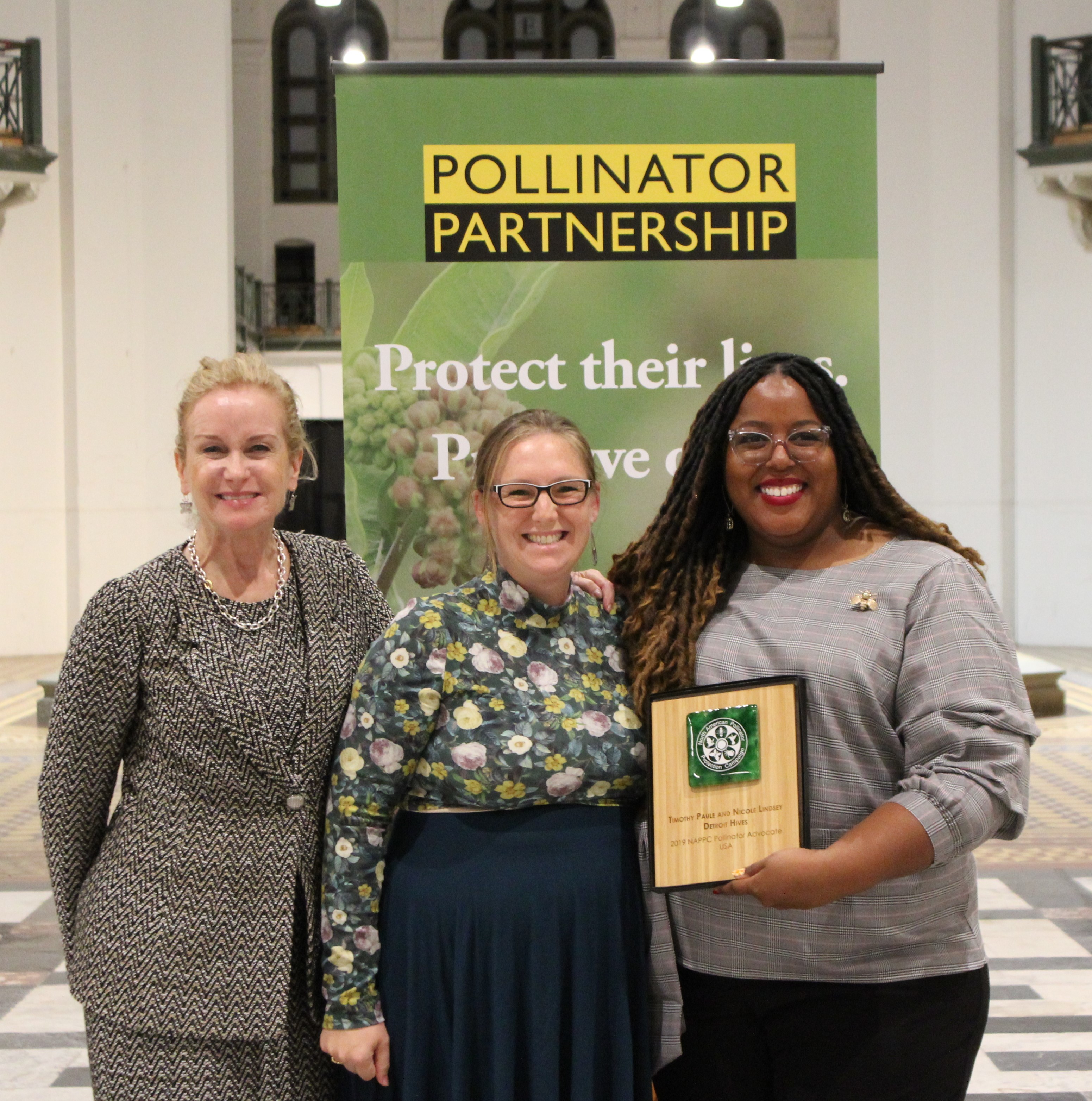
Tim Paule and Nicole Lindsey became founders of Detroit Hives after Tim had suffered a cold and discovered the healing powers of honey. In their hometown of Detroit, they have been able to convert abandoned into functioning and healthy honey bee apiaries. They educate younger generations about the importance of the ecosystem through events where visitors can try on a beekeeping suit, sample honey, and learn about bees.
Cindy Cohanim - Calstone
NAPPC POLLINATOR ADVOCATE CANADA 2019
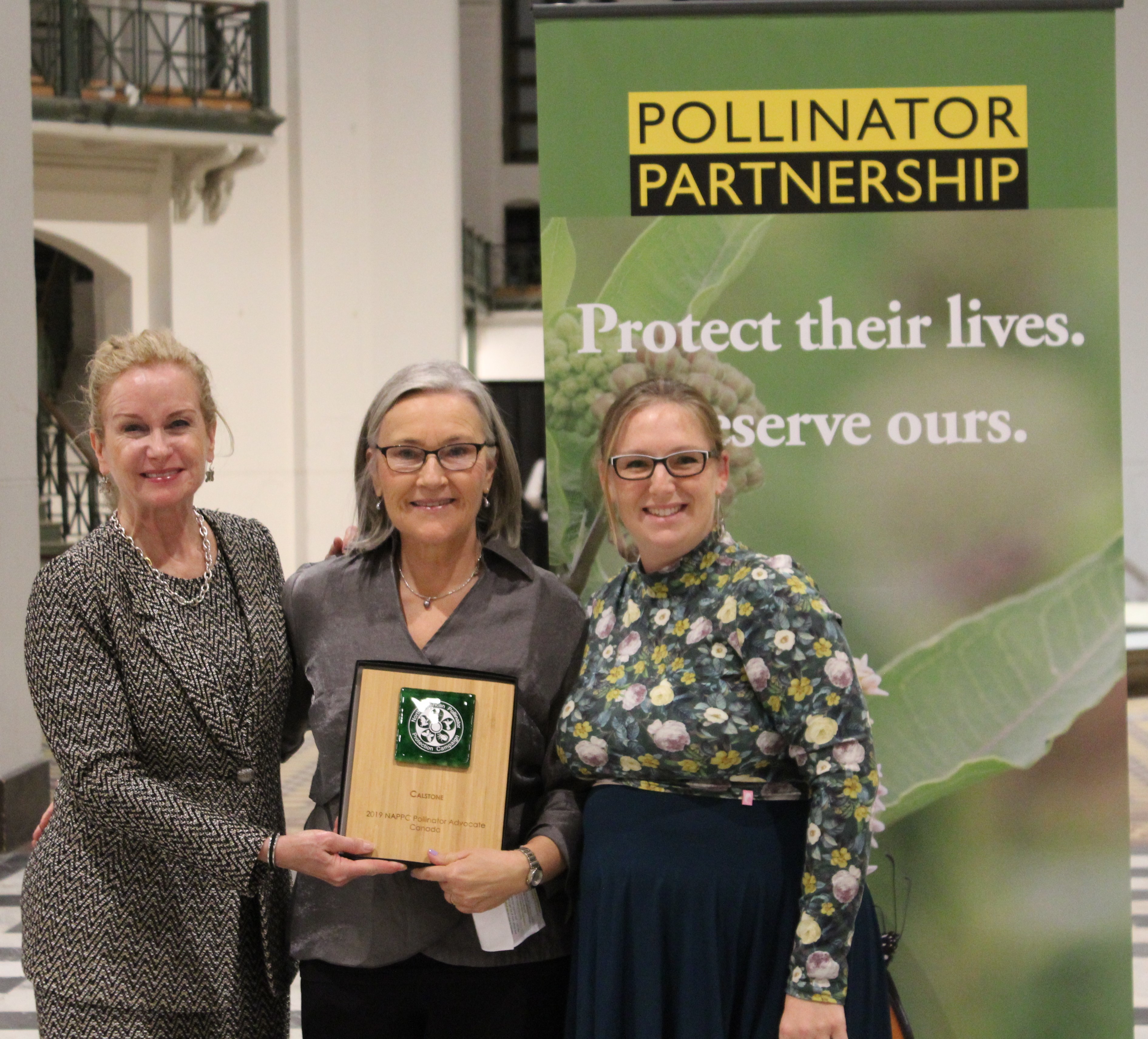
Established in 1985, Calstone is a family owned Canadian manufacturer of steel office furniture. Calstone is taking initiative to follow a “green” path towards combating global warming and climate change. In 2015, Calstone teamed up with the Toronto and Regional Conservation Authority and the Toronto District School Board to support Tom Longboat school with an outdoor raingarden project. The pollinator raingarden has inspired young children to appreciate nature and learn how to identify indigenous plants and which ones are beneficial to butterflies and bees.
Equipo Abejas
NAPPC POLLINATOR ADVOCATE MEXICO 2019

Equipo Abejas has been working since 1986 with students, technicians, project coordinators, and researchers in order to harmonize the relationship between society and nature. With a group of about 25, around half of the members dedicate their time to research while the other half of the members are educators. With a focus on honeybees and native bees, their mission is to deepen the publics’ knowledge on the practices and processes of honey production and healthy and environmentally friendly beekeeping strategies.
Brian and Becky Tankersley - Double Branches Farm
NAPPC FARMER-RANCHER USA 2019
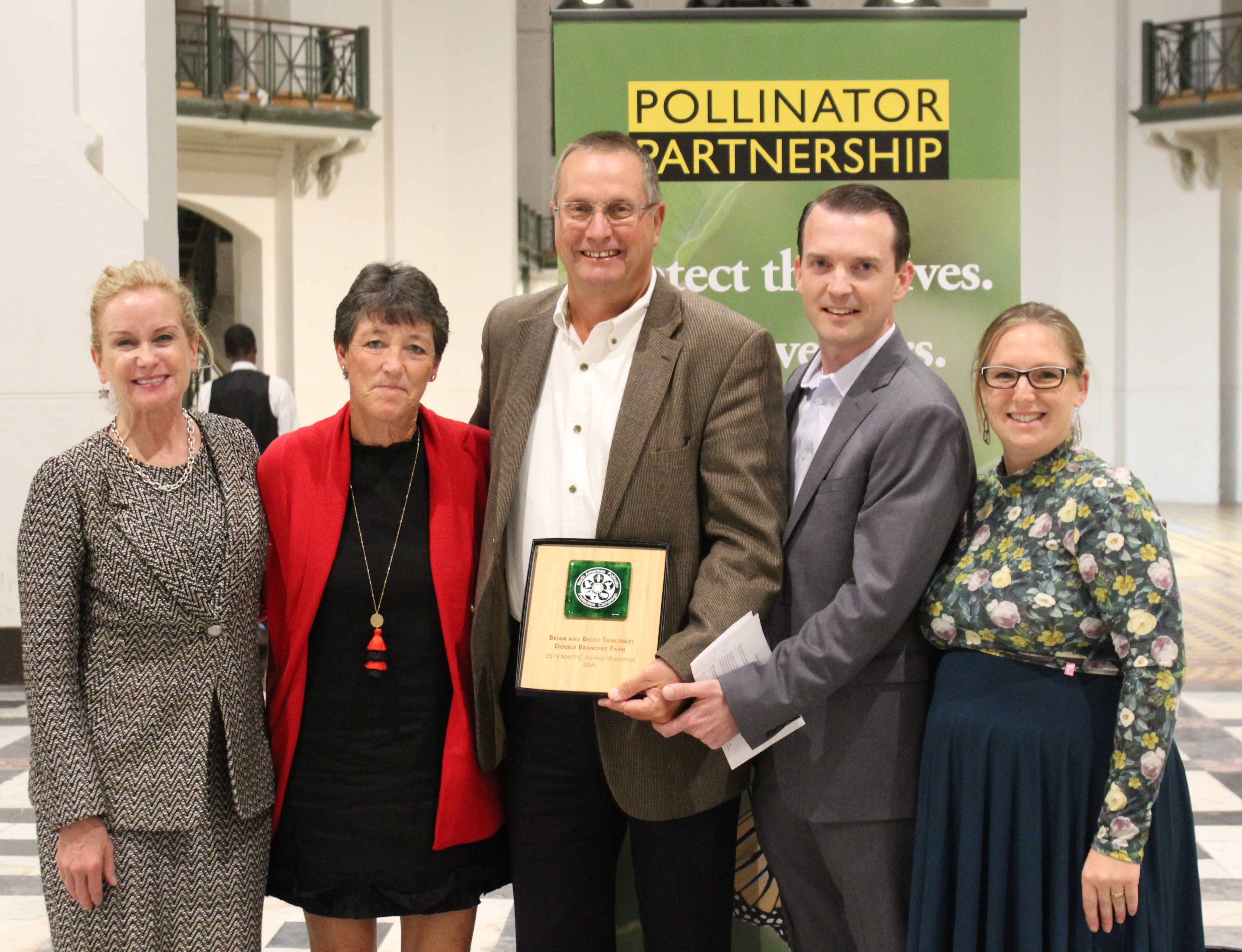
Brian and Becky Tankersley are owners of the Double Branches Farm in Lincoln County, Georgia. This 97-acre farm features pick your own berries and in season vegetables. They have worked hard to provide positive habitats for pollinators, and in order to promote pollinator awareness and conservation, Brian has written news articles pertaining to pollinators. Doubles Branches Farm serves as an outdoor classroom to educate parents and their children on the importance of farm life and pollinator-friendly practices.
Robin Hunt and Johan Bos - Big Rock Ranch
NAPPC FARMER-RANCHER CANADA 2019
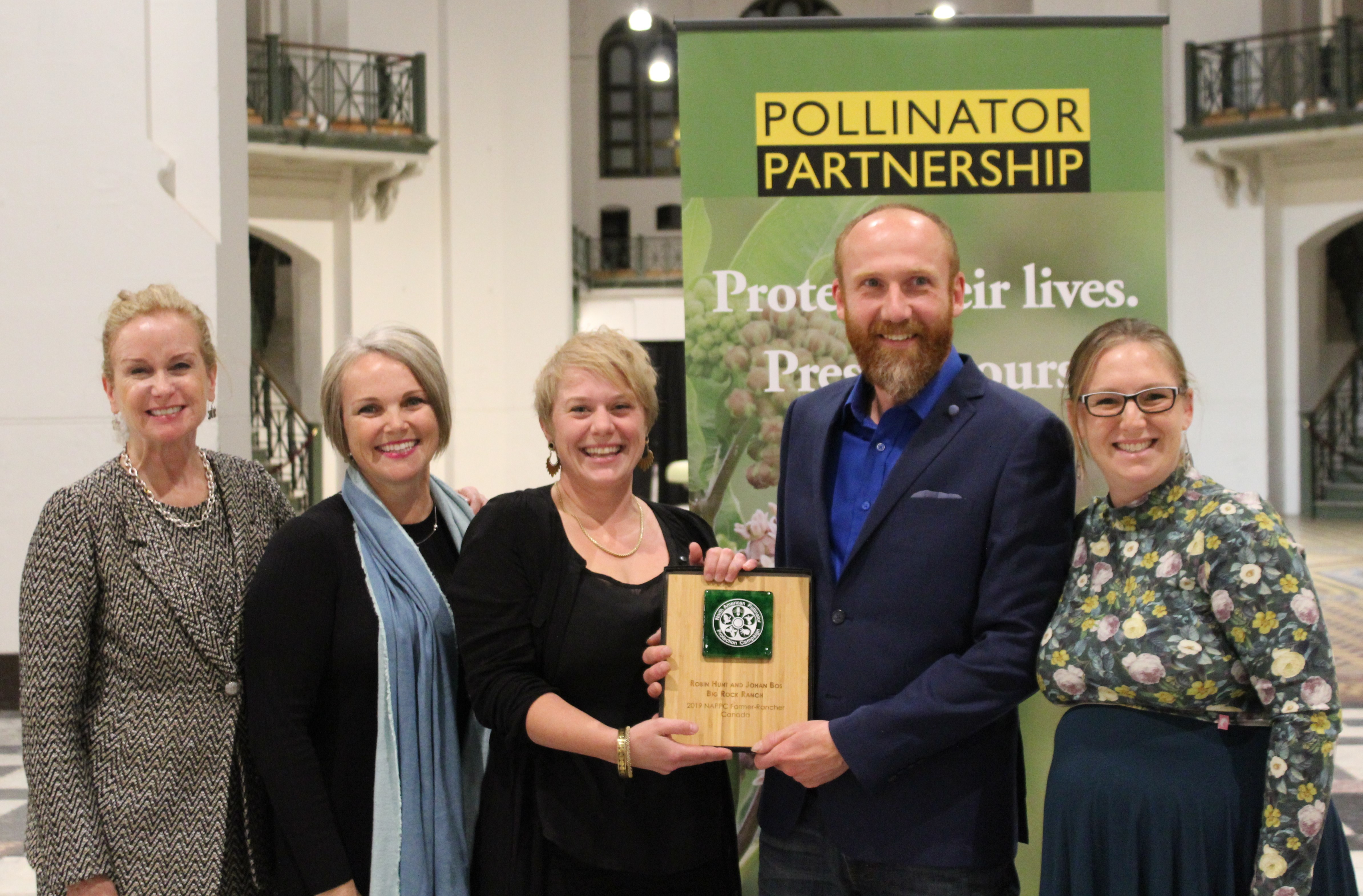
Big Rock Ranch is a family-run, certified bee-friendly farm that raises free-range heritage chicken, runs a mixed fruit and vegetable garden market, and a small Bed and Breakfast. Robin Hunt and Johan Bos strongly believe in keeping its food as close to its source as nature intended. With a passion for sustainable farming and animal welfare, this young couple embarked on an adventure to providing the public with access to fresh, locally-grown produce.

